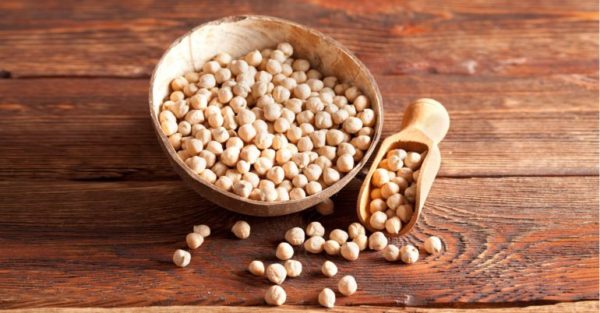Lightly roasted for a quick snack, blitzed into a dip, or featured in your main course – chickpeas can fit in anywhere. And good thing, too, because they’re great for your health! This powerhouse of protein and fiber can not only help you lose weight but also defend you against cancer and heart disease. So for a healthy addition to your diet, check out the chickpea!
Whether it’s in a salad or a dip, the nutty flavor of chickpeas can be a treat. They’re not only tasty but also great sources of carbohydrates and proteins. Chickpeas are also a significant source of dietary fiber and contain healthy unsaturated fatty acids like oleic and linoleic acids. But that’s not all! They also have many important vitamins (riboflavin, thiamin, niacin, and folate) and minerals (calcium, magnesium, phosphorus, and potassium). All of this translates into a legume with many health benefits.
What Can Chickpeas Do For You?
Besides being a nutritional powerhouse, the humble chickpea can:
Help With Weight Loss
Chickpeas and other pulses like lentils and beans can help you feel full as they’re high in protein as well as fiber. They also make you feel fuller for a longer time – just the thing you need to stop hunger from sabotaging your diet! In fact, a study found that participants who had 3/4 of a cup of pulses a day for six weeks lost .75 pounds on average without making any other dietary changes.
Ease Constipation
Chickpeas can help move waste because of their high fiber content. So if you’re feeling constipated they can even act as a natural laxative. Don’t suddenly add large quantities of fiber to your diet, though – this can cause gas and bloating. Take slow and steady steps, increasing your fiber intake gradually.
Deal With Diabetes
Chickpeas are great for people with diabetes because of their low glycemic index (GI). That is, the starch in chickpeas is digested slowly, providing steady and constant energy without increasing your blood sugar too much. Foods with a low GI are also associated with lower rates of heart disease. Regular intake of chickpeas has also been found to reduce insulin resistance in animal studies.
Do Your Heart Some Good
Research has shown that a diet rich in pulses like chickpeas can lower LDL or “bad cholesterol” and total cholesterol without affecting levels of HDL or “good cholesterol.”The soluble fiber in chickpeas can bind to cholesterol in the digestive system and remove it. This stops it from clogging your arteries, thus lowering your chances of getting heart disease.
Protect Against Cancer
Chickpeas may be able to protect you against colon cancer according to some research. Chickpeas are rich in resistant starch, basically starch that is not digested in the small intestine; instead, the bacteria in the colon use it to produce short-chain fatty acids, which appear to protect colon cells.10 According to a study by Bingham et al., how much fiber you take through foods is inversely proportional to the chances of large bowel cancer. People with a low intake of dietary fiber may, in fact, be able to reduce their risk of colorectal cancer by 40% if they double their intake of dietary fiber.11Chickpeas contain other beneficial substances like saponins and antioxidants too that can protect against cancer.
Balance Hormones
Estrogen replacement therapy (ERT) is usually recommended for treating menopausal symptoms in women. But what if you’re not comfortable with this artificial hormonal therapy? Chickpeas to the rescue again! Chickpeas contain isoflavones which have effects similar to those of female hormone estrogen. According to research, menopausal women who added a cup of chickpeas to their diet for 8 weeks found that symptoms like anxiety, constipation, and hot flashes were significantly reduced.
Filling Up On Chickpeas
According to the US Department of Agriculture (USDA) guidelines, beans and peas can be categorized under either the protein or the vegetable group. Sounds a bit tricky? All this boils down to is that, if your protein intake is high (say, if you’re a non-vegetarian), chickpeas can fall under your daily recommendation for vegetables. On the other hand, if you are a vegetarian and on top of your recommended vegetable intake that particular day, have them to meet your required protein needs. Either way, chickpeas and other legumes should figure prominently in your diet.
So how much do you get in? Because of their high nutritional content, beans and peas are recommended for everyone. The USDA suggests an average of 5 to 6.5 ounces of protein daily for an adult – about one-quarter of a cup of cooked chickpeas is equal to an ounce, so you can have at least 1.5–2 cups a week even when chickpeas aren’t your main source of protein.13 Under the vegetable group too, about 1.5–2 cups of beans and peas per week is recommended as part of a balanced diet comprising different vegetables. Considering how good chickpeas can be, you have every reason to make them a regular part of your daily diet!



Leave a reply